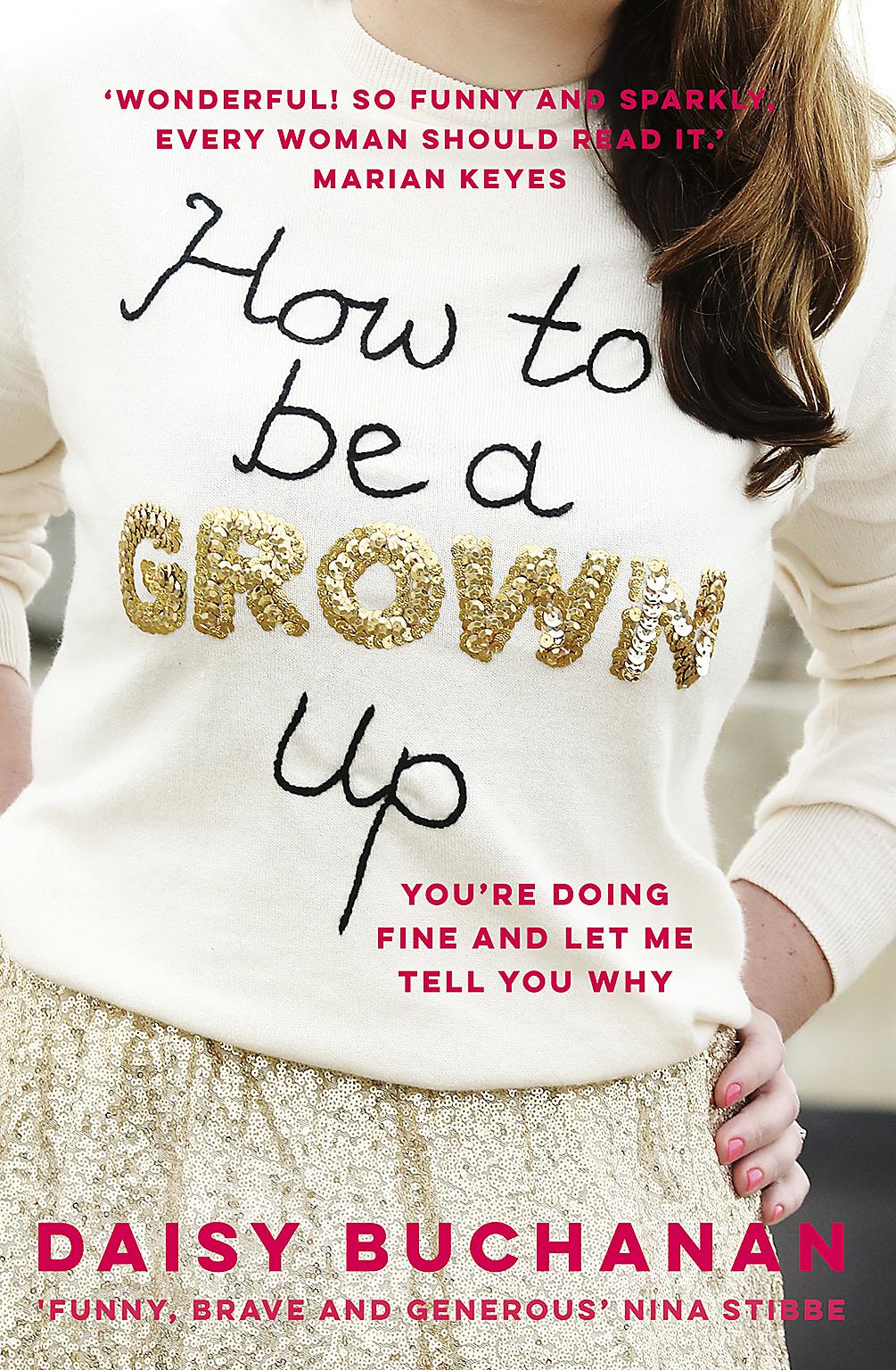How to Be a Grown-Up by Daisy Buchanan review: Come for the life advice, stay for the feminism
It’s no secret – growing up can be hard to do. That’s why journalist Daisy Buchanan was inspired to write a book that’s part memoir and part self-help for her fellow millennials – but the final product bears a message that transcends its target demographic, making How to Be a Grown-Up a must-read for all ages

Your support helps us to tell the story
From reproductive rights to climate change to Big Tech, The Independent is on the ground when the story is developing. Whether it's investigating the financials of Elon Musk's pro-Trump PAC or producing our latest documentary, 'The A Word', which shines a light on the American women fighting for reproductive rights, we know how important it is to parse out the facts from the messaging.
At such a critical moment in US history, we need reporters on the ground. Your donation allows us to keep sending journalists to speak to both sides of the story.
The Independent is trusted by Americans across the entire political spectrum. And unlike many other quality news outlets, we choose not to lock Americans out of our reporting and analysis with paywalls. We believe quality journalism should be available to everyone, paid for by those who can afford it.
Your support makes all the difference.Life as a grown-up can be no fun. If you’re not worried about going to war with Spain over Gibraltar, or the possibility of Trump and Kim Jong-un chucking nukes at each other, there’s Easter eggs and Pepsi to get exercised about, and that’s before we find time to get bothered about work or paying the rent or even worrying about finding a job or somewhere to live. Aaaand… relax.
Daisy Buchanan is here, just in time, with a message for everyone: You're all doing fine. Journalist Daisy has a book out today called How to Be a Grown-Up. It’s no twee “chicken broth for what ails your soul” type cod-inspirational thing though, more like a “have this double Bombay Sapphire, everything’s going to be fine” manual to navigating modern life, especially if you’re a woman and born in the last 30-odd years.
Especially, but not exclusively. How to Be a Grown-Up is that rare thing, a book that wears its target market on its sleeve but which is so full of useful stuff that it transcends its demographic and has something important to say to pretty much anyone. “I suppose I wrote it because millennials seem to get a hard time,” says Buchanan. At 32 she’s in that camp, those people who “came of age” in the year 2000 or thereabouts, and who are often demonised as over-sensitive snowflakes who spend more time bitching about life on social media than doing anything constructive with it.
“We have a bad rep. We all grew up thinking that if we worked really hard, and went to university, and did as we were told then everything was going to be fine.”
It was a model that worked for the millennials’ parents, but things were different then. University was free, jobs were more plentiful, and houses easier to buy. So it’s hardly surprising that when the millennials get to adulthood the advice from the previous generation kind of ceases to be relevant.
“I think we’re super conscientious as a generation,” says Buchanan. “We had lots of pressure to realise our potential, but then we had to start our careers in tonnes of debt and I think many things are harder for us than for the previous generations. “And then we start to ask ourselves how and when we are supposed to do all that stuff that seems to be a given when you become an adult… buy a house, get married or find a long-term relationship, have children if that’s what you want to do… and it isn't helped by social media.
“It feels like more and more women have something to be insecure about or frightened of, and a lot of that can be because more and more people are documenting their lives online and perhaps setting standards that others feel they need to live up to.”
But what to do? Well, Buchanan has been there, done that and bought the T-shirt, so decided to share the benefit of her experience for young women who might be foundering in the onslaught of real life. Or, in her words: “I suppose I just wanted to write a book hug.”

Thus How to Be a Grown-Up is part memoir, part advice book, but really it’s simply a message from one woman to anyone who’s reading it that the problems they are facing are not unusual and rarely insurmountable. It’s witty, funny, not a little shocking, and written with real heart. Buchanan pulls no punches; she tells of her own sexual assault, she talks frankly about getting sacked, she talks about the importance of allowing yourself to be sad.
“The How To Be Sad chapter is really important to me,” she says. “It’s entirely normal to be sad sometimes but we often run from our feelings, we think we’re failing if we’re sad about something. The reason I wanted to talk about all those personal things… I’ve always written with a very personal element and I suppose I wanted to show my working. I don’t think I’ve had a terribly harrowing life, but that’s sort of the point. ”
Some people might think some of the things Buchanan relates in the book are indeed harrowing, but that might be from a male perspective. Women will find her experiences common to them, and as Buchanan says, that’s the point… nobody is alone in what they’re going through. To go back to the subtitle of the book: “You’re doing fine, and let me tell you why.”
How to Be a Grown-Up is of a piece with Caitlin Moran’s 2011 book How to Be a Woman. I picked up my wife’s copy of Moran’s book, idly flicked through, and then started reading. A few chapters in I stood on a chair and declared, at Moran’s insistence, “I am a feminist!”. I imagine and hope that although Buchanan’s book is targeted at young women, a good number of husbands, boyfriends, brothers and dads might do the same. I’ve no doubt they’ll turn to the section on sex first (chapter nine, just so you know) but will start at the beginning and read through. “I hope so! ” says Buchanan. “One of the loveliest reviews I had so far was from a male reader on Amazon. It might help men who have a partner, a sister or a daughter understand them a bit better.”
If you’re a woman, How to Be a Grown-Up is essential reading. If you’re a man, well… maybe come for the sex, but stay for the feminism. You won’t regret it.
How To Be A Grown Up by Daisy Buchanan is published by Headline, £14.99 in hardback, available now
Join our commenting forum
Join thought-provoking conversations, follow other Independent readers and see their replies
Comments